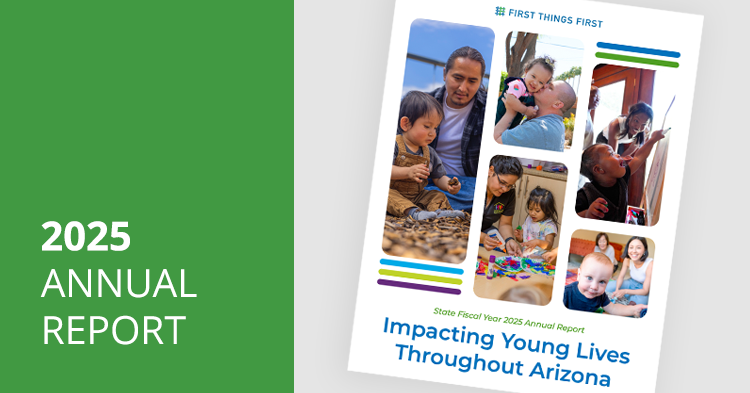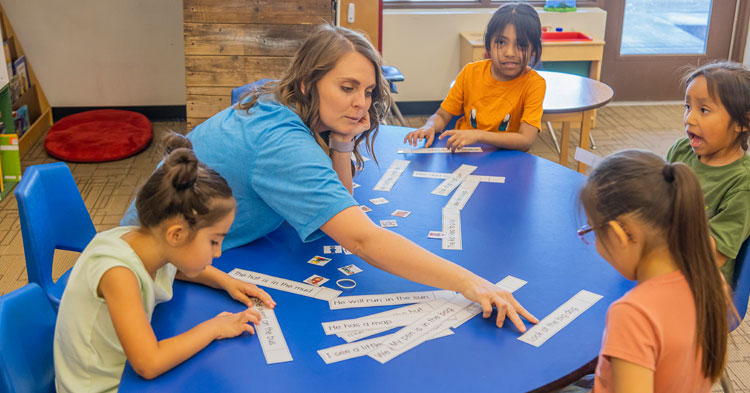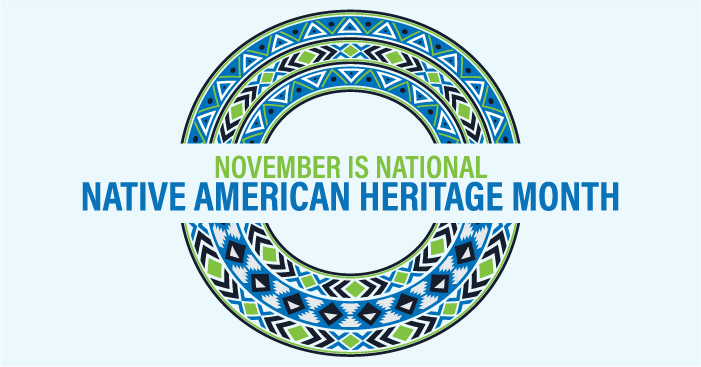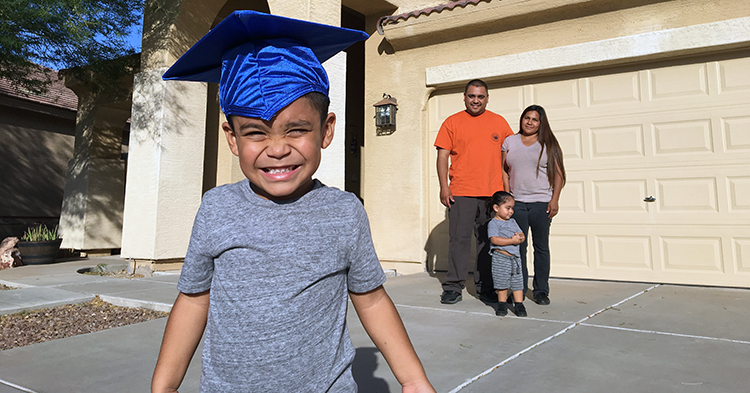
Chad Gestson spent over two decades as an educator, principal, and eventually superintendent in Arizona middle and high schools. During his eight years as superintendent of the Phoenix Union High School District, he was lauded for recreating the district, now known as PXU, into a nationally recognized model for high schools.
Every time someone would visit one of his high schools they’d ask, “What do you need to improve outcomes?” His response was always the same. “Don’t talk to me. Go figure out birth to 5. If you can figure that out, we won’t need anything else at high school level.”
Gestson has since left the day-to-day job of running dozens of high schools. Instead, he’s focusing on bigger picture ideas, where education and the economy meet. He serves as the founding executive director at the Arizona Institute for Education and the Economy at Northern Arizona University, which cultivates policies and solutions to improve Arizona’s educational outcomes and works to ensure long-term economic prosperity for the state.
One of those big ideas is helping Arizona’s economic leaders understand why early childhood education—often dismissed as just daycare or babysitting—is essential to the current and future economy.
He recalls early in his career, how one of his first assignments as a newly-minted assistant principal was to oversee the kindergarten classrooms, where children of all levels are in the same classroom, which he described as the starting lines of their school career.
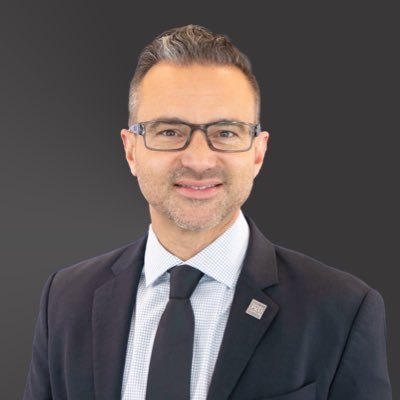 “You literally see the achievement gap on the first day of school,” Gestson said.
“You literally see the achievement gap on the first day of school,” Gestson said.
“We then spend the next 13 years in K-12 trying to fill in the gaps that showed up on the first day of kindergarten.”
He sounds off on research about the return on investment that quality early childhood education provides and the decades of studies that demonstrate that children with access to high-quality early childhood development and health opportunities are more prepared for kindergarten, do better in school, and are more likely to graduate from high school and enroll in college.
One of his big-picture ideas is to open up Arizona’s kindergarten classrooms and invite the state’s influencers—legislators, lobbyists, business and industry executives, directors of nonprofits and philanthropists—to see firsthand the chaos and beauty of a 5-year-old’s mind. And then talk to these leaders, who may not understand that 90% of a child’s brain growth happens before age 5. And remind them of the short-term and long-term economic impact of the absence a statewide birth to 5 plan or strategy.
“Remember the first six months of the pandemic? People were freaking out,” Gestson recalled. Not just because of the virus, but because the American economy is largely based on adults dropping their kids off Monday through Friday to go to work. If businesses found ways to get kids in preschool and child care on the daily, we’d have a workforce solution almost immediately.”
Gestson is still in his first year in his new role and in the planning stages of many projects, including Starting Lines, which is what he’s calling his visits to kindergarten classrooms. But he said he’ll continue to build awareness of the importance of early childhood, not only for children and their families, but because it is so important for Arizona’s economy


